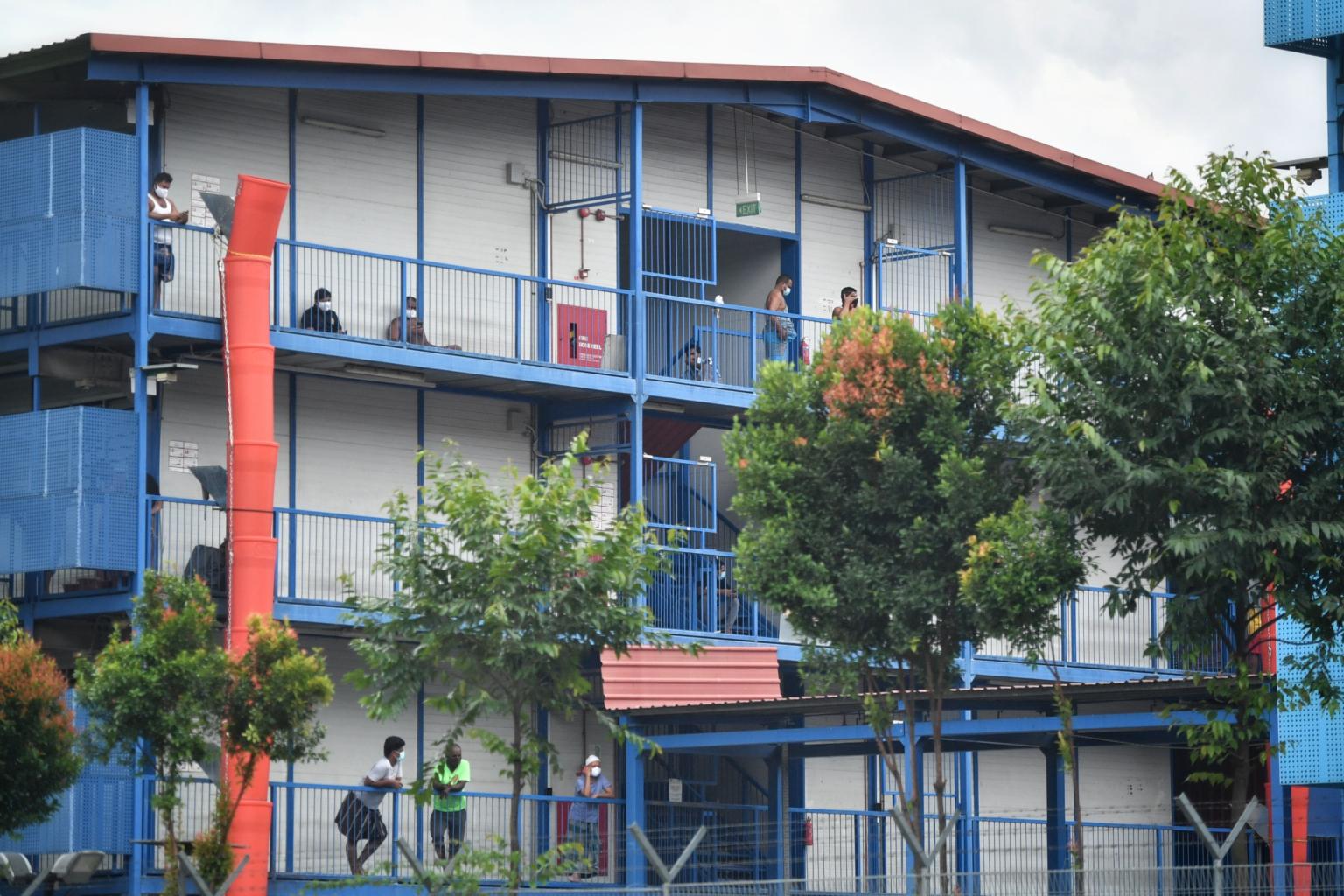Steps to better support migrant workers' mental, physical health
Sign up now: Get ST's newsletters delivered to your inbox

A work group is looking at the mental health issues faced by the workers to see how to better support them.
PHOTO: ST FILE
The authorities are looking into better supporting the mental and physical health needs of migrant workers here in the long run, said the multi-ministry task force tackling Covid-19 yesterday.
This includes assessing whether workers will be allowed to leave their dormitories on their rest days, said Education Minister Lawrence Wong who co-chairs the task force.
Migrant workers staying in dormitories have spent the last few months confined to their quarters.
The Ministry of Manpower (MOM) has said it is aware of the recent suicides and attempted suicides involving migrant workers staying in dorms.
The task force is concerned about the workers' situation, said the Health Ministry's director of medical services Kenneth Mak at a virtual press conference yesterday.
"They've not been allowed to come out of the dormitories into the community freely. And that prolonged period of isolation will obviously have potential adverse effects on any individual, not just migrant workers, but anyone who, in fact, has to be cooped up in isolation with very limited opportunities for social interaction," he said.
Associate Professor Mak added that the inter-agency task force, together with MOM and private stakeholders, has been working to support the welfare of these workers in various ways, such as helping them celebrate holidays and providing avenues for help and counselling.
He added that a work group is looking at the mental health issues faced by the workers to see how to better support them.
"This continues to be a work in progress so I do not pretend that the work is completed (or) that we have a very comprehensive system of support," he said.
But the task force is committed to making sure there is a "sustainable framework" to support the mental health of migrant workers, even after the outbreak ends, he added.
Mr Wong said measures will also be taken to ensure workers' physical health, including routine testing every 14 days.
If a case is detected, the aim is to quickly isolate the workers in the same room or on the same floor, in order to avoid having to lock down the entire block or dormitory.
In addition to this, Prof Mak said, many measures such as telemedicine and telemonitoring using telekiosks and various other monitoring devices that were deployed in the dorms are likely to continue.
The task force is also looking to establish more long-term medical facilities, such as medical centres within or near dorms to provide care for both acute and chronic conditions.
Asked whether the task force would consider loosening some of the restrictions on migrant workers, Mr Wong said the situation is being monitored "very carefully".
He noted that workers who are currently confined to their dorms are already given the opportunity to leave their rooms.
However, he added that given the high viral load in the dorms, residual cases can linger for weeks.
So there is a need to conduct regular tests on the workers for a while more, in order to ensure that all of them are free from the virus.
Mr Wong said: "At some point... as we have assurance that the testing process is done and the workers are free from the virus, we will also look at expanding the provision for them to go out, be it to recreational centres or to the community at large on their rest days."


